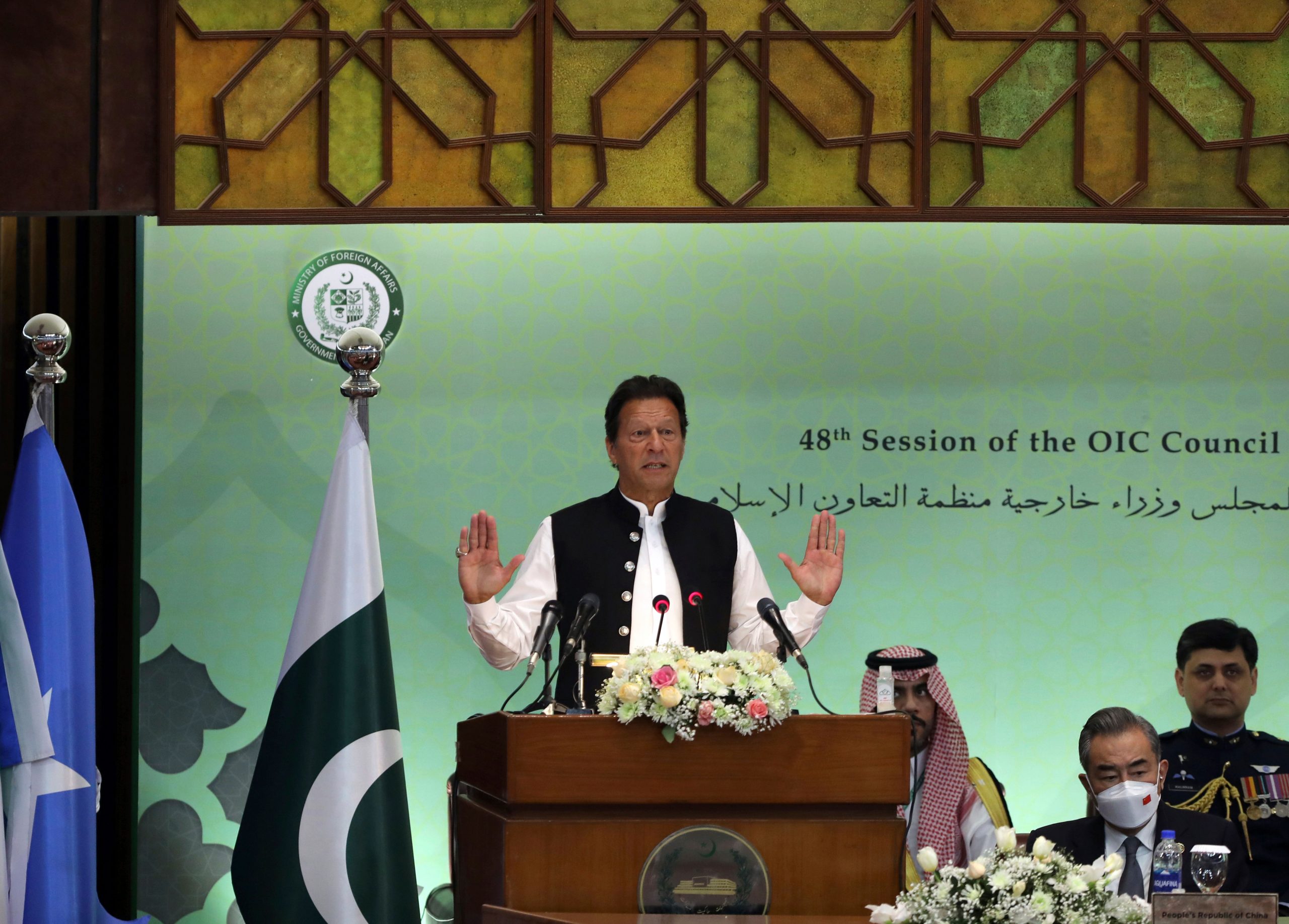Pakistan Prime Minister Imran Khan’s strategy for Saturday’s no-confidence vote is simple – fight legally and win public support. The Pakistan Tehreek-e-Insaf chairman, however, has no plans of resigning.
“Imran Khan plans to fight, taking people into confidence, as he faces the no-trust vote on April 9,” a top aide told CNN-News18.
Also read: Russia lowers interest rate, props up ruble in order to reach pre-Ukraine war level
The Prime Minister wants to fight legally after his dissolving the National Assembly earlier this week was declared unconstitutional by Pakistan’s Supreme Court.
“Khan will fight legally, and in the court of public opinion. The Parliament session will be in-camera and Khan feels it will be the appropriate place to expose everything,” the aide added.
Khan is also expected to elaborate on the letter he claims will expose the ‘foreign conspiracy‘ plot against him, CNN-News 18 further reported citing sources. However, he does not plan to resign.
Also read: RBI keeps lending rates unchanged: What are repo and reverse repo rates?
The report comes after the Supreme Court rejected the dismissal of the no-confidence motion by Pakistan National Assembly Deputy Speaker Qasim Khan Suri. The opposition parties on Friday submitted a no-confidence motion against Suri, accusing him of acting in a “blatantly partisan manner” in favour of the government and failing to conduct proceedings in an orderly manner to enable a productive debate on issues of public importance.
The government also set up a commission to investigate the alleged foreign conspiracy.
The National Assembly’s session for voting on the no-confidence motion against Prime Minister Imran Khan will take place at 10:30 AM on Saturday in line with the Supreme Court’s order.
Also read: From professor to prisoner, Hafiz Saeed sentenced to 31 years
The opposition parties need 172 members in the 342-member house to oust Khan.
Khan came to power in 2018 with promises to create a ‘Naya Pakistan’ but miserably failed to address the basic problem of keeping the prices of commodities in control. The current term of the National Assembly was to end in August 2023.
No Pakistani prime minister has ever completed a full five-year term in office.







